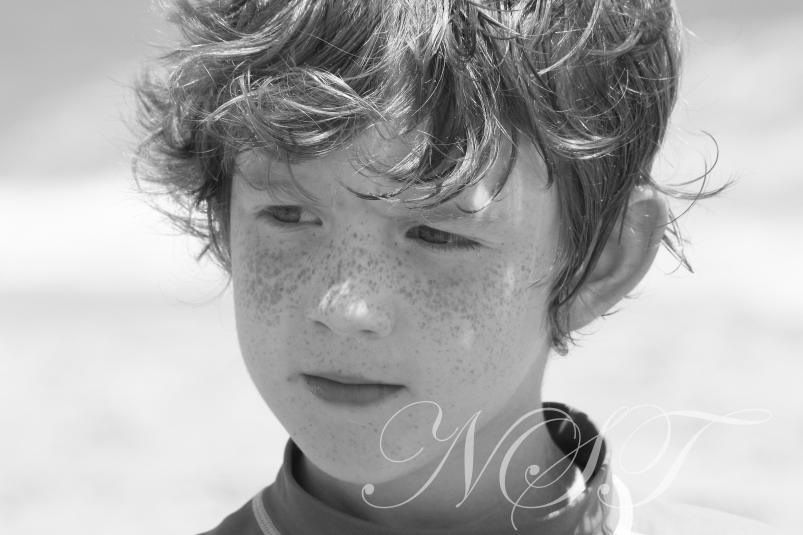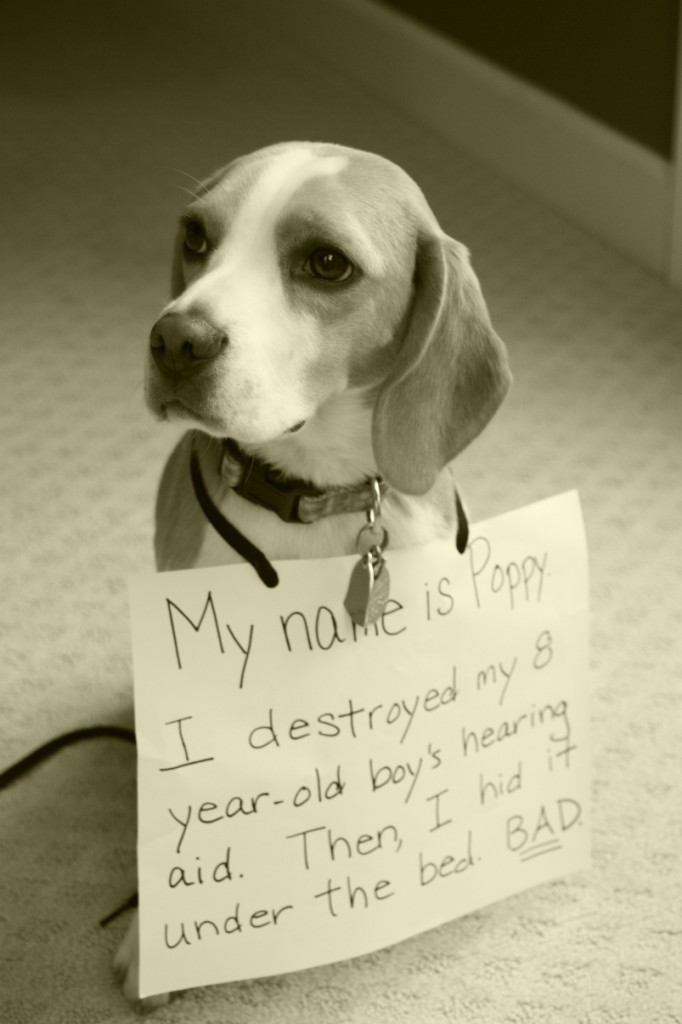How to Help a Child with Hearing Loss: An Interview with Kristen Johnson
For those without hearing loss, lacking the ability to listen to music or enjoy a child’s laughter is almost unthinkable. Many of us take our senses for granted, but what we do if a loved one was suddenly diagnosed with hearing loss? Kristen Johnson of No Small Thing dealt with exactly that when she and her husband found out that one of their sons, Henry, had hearing loss. Although the diagnosis was initially difficult to cope with, Kristen and her family found a way to turn Henry’s condition into an opportunity. As she points out in our interview, there are many other methods of communicating; it just takes a little experimenting to find one that suits your family. For Kristen’s advice and to find out just what, exactly, hearing loss has to do with peanut butter and mustard sandwiches, check out our interview below.
SB: You’ve mentioned on your blog that it was difficult to accept Henry’s diagnosis of hearing loss, and that at the time, little information was available. Can you share your advice for other parents who have just received this diagnosis for their children?
KJ: First, remain calm!!! This diagnosis may seem like a crushing blow. Looking back, I realize that most of my fear had to do with me, and the fact that I did not know how to parent, teach, communicate with or help a child with hearing loss. But he was still my little boy — nothing about him had changed. So what had changed? Me — I gained knowledge about Henry. I learned something about my little boy that I didn’t understand. The good news is that once you have a diagnosis, you can begin to work on improving communication, education, everything!
Second, get your hands on as much information as you can. Educate yourself about hearing, hearing loss, hearing aids/cochlear implants, sign language, modes of communication, etc. You will find that there is a “fit” for your family on how you want to proceed. Third, find someone you can lean on… someone with a little more experience than you that can offer advice, expertise or even just an ear. There are forums online you can go to, or blogs, and depending on where you live, there may be groups/clubs that you can join to get to know other families affected by hearing loss. Fourth, follow your gut. I cannot stress this enough. Do not let anyone tell you what is best for your child. You can take everyone’s advice and weigh it carefully, but in the end, YOU are the expert on your child.
SB: Henry was fitted for hearing aids. What was his first experience with amplified sounds like? Is he becoming more accustomed to using them?
KJ: Henry’s first experience with hearing aids was wonderful. He adjusted to them instantly really, and we never had an issue with him removing them as some children do. He seemed to genuinely understand what they were for, even at the tender age of two. :) The first time he wore them, we went for a walk in the woods. There was a bird circling overhead, and every time we would hear the bird chirp, Henry would imitate the sound. I believe that was the first time he had ever heard a bird. That night I read “Where the Wild Things Are” to him. It was the first night I had ever made it through an entire book with him. He asked for me to read it again, and again. It was beautiful.
SB: For our readers: hearing aids (and cochlear implants) are not a cure for hearing loss – it takes time and practice to learn and understand sounds. Are there any speech therapy techniques that are particularly helpful for Henry?
KJ: We were concerned that Henry would have a difficult time distinguishing spoken language without visual cues. We wanted to make sure that he could distinguish all of the sounds and not rely on visual cues AT ALL, so we blocked his visual access to our mouths as we spoke so that he could not read our lips. This is known as the auditory verbal approach. I supposed it sounds somewhat cruel to withdraw a source of support for a child that is struggling to communicate. But in order to understand exactly how much information he was getting on a purely auditory level, we had to remove the visual stimuli. He did a fantastic job.
Now that his language is becoming more sophisticated and we know that he has access to the language through his hearing aids, we do not do that. We allow him to read our lips, and encourage his teachers to face him so that he can hear better, and use visual cues.
SB: Auditory-verbal therapy for children with hearing loss recommends the creation of an environment that lends itself to better listening and the acquisition of language. Can you share your tips for encouraging communication in the home?
KJ: Make sure to create an environment that fosters communication. Turn off appliances. In our home, the dishwasher, washing machine, dryer, TV, microwave all make a low drone when in use. Even the heat and air conditioning make noise when on. Some of them can be rather loud. I encourage parents to listen to these noises with their child’s hearing aids to see just how loud they become, and just how difficult it can be to distinguish language when any one of them is in use. (In our home, it is not uncommon for ALL of them to be running at the same time!) Also, try covering the mouth to see how well your child is accessing language. Speak slowly and clearly.
Everything can be a “language experience.” For example when you are cooking, you can describe what you are doing. Use adjectives. Talk, talk, talk. Talk so much that you feel like you’ll scream if you have to talk anymore, and then talk some more. Ask your child open-ended questions. For instance, instead of asking your child if they want PB&J for lunch, ask them, “What would you like for lunch today?” Humor also works well in our family. Give them choices, and make them a little bit crazy so that they learn that they have to listen. For instance, ask them if they would like a peanut butter and mustard sandwich today. If they say yes, then give them a peanut butter and mustard sandwich. Henry thought these types of exchanges were hilarious. If you think it would upset or frustrate your child further, then humor/trickery might not be the best option.
SB: You and your husband have three other children. Is Henry the youngest? How have your other kids adjusted to Henry’s diagnosis?
KJ: Henry is our third child of four. For our family, the other children don’t remember Henry without hearing aids, so they have not really had to “adjust.” When he was first diagnosed, we did help them to understand that Henry wasn’t able to hear very well, and that we would get hearing aids to help. Children are very curious, inquisitive, and accepting. When there are questions, we answer them honestly and they move on.
SB: Although raising a child with special needs can present challenges, Henry is living proof that, given the proper tools, a special needs child can thrive. Try out Kristen’s advice and talk to your child’s speech-language pathologist (SLP) about additional at-home speech therapy techniques to do with your child, such as articulation practice. And be sure to check out more of Kristen Johnson’s story and advice at her blog, No Small Thing.





